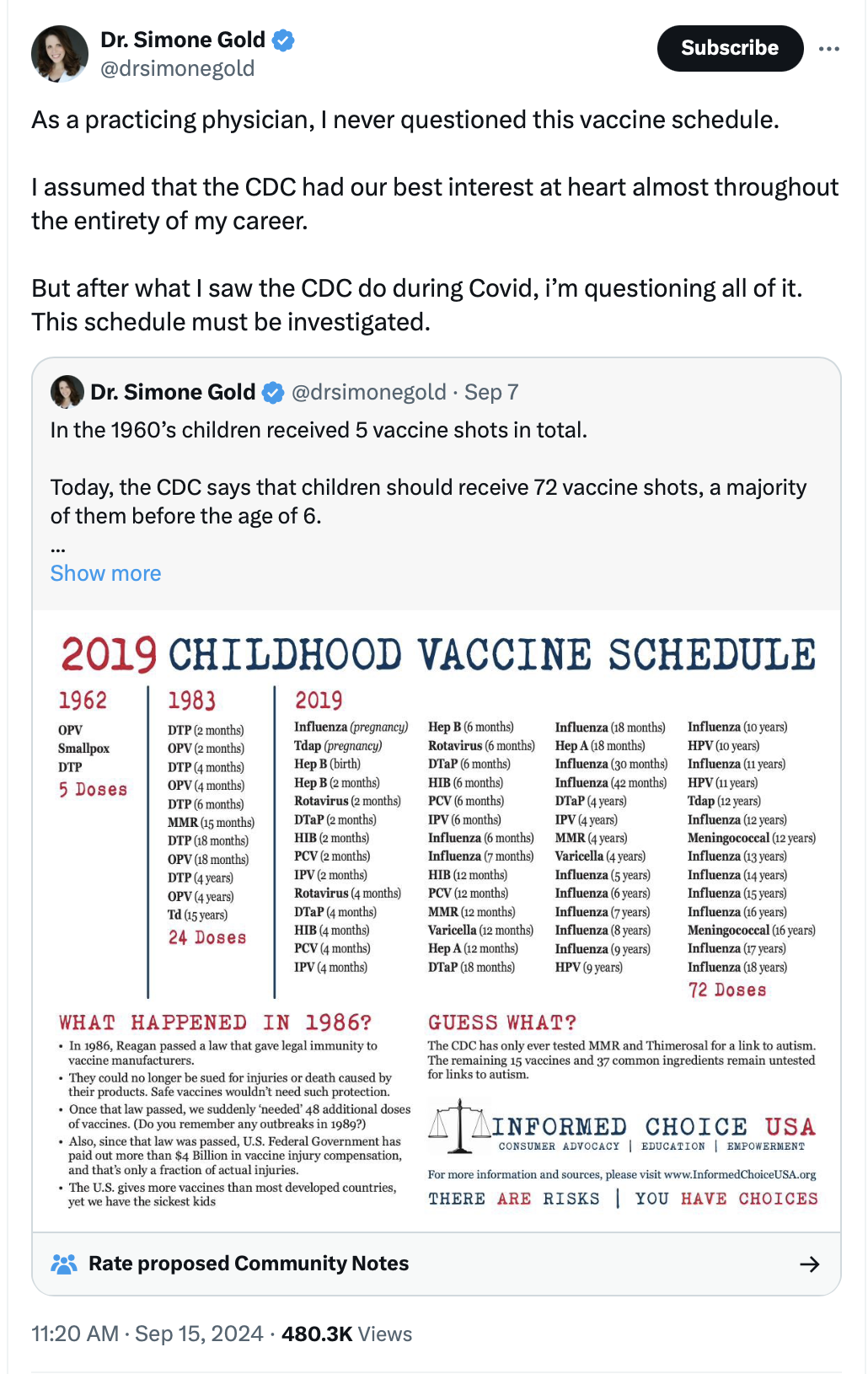The Claim That Vaccines Have Been Carefully Tested
In a recent article, attorney Aaron Siri makes extraordinary claims based on litigation he has handled. An excerpt:
After decades of Dr. Stanley Plotkin and his vaccinologist disciples insisting vaccines are the most well studied products on the planet, they just penned an article admitting precisely the opposite.They just admitted vaccines are not properly studied—neither pre-licensure nor post-licensure. They admitted, for example, “prelicensure clinical trials have limited sample sizes [and] follow-up durations” and that “there are not resources earmarked for postauthorization safety studies.”
That is an incredible reversal. But let me provide context so nobody is fooled at what they are clearly up to:
For decades, the medical community insisted vaccines are the most thoroughly studied product ever; for example, Dr. Paul Offit said, "I think we should be proud of vaccines as arguably the safest, best tested things we put in our body.”
For decades, parents of vaccine injured children, vaccine injured adults, and other stakeholders contested these claims only to be shunned and attacked by the medical community and health agencies.
In 2018, I had the unprecedented opportunity to depose the architect of our vaccination program and the Godfather of Vaccinology, Dr. Plotkin, and lay bare the evidence that showed what these authors are now finally admitting about the utter lack of vaccine safety trials and studies. See https://thehighwire.com/ark-videos/the-deposition-of-stanley-plotkin/.
After this deposition is made public, Dr. Plotkin goes on a tirade, making demands that FDA add “missing information on safety and efficacy” in vaccine package inserts and that CDC exclude harms from its Vaccine Information Sheets, “lobbying the Gates Foundation to support pro-vaccine organizations,” working to have WHO list vaccine hesitancy as a global threat, lobbying AAP, IDSA and PIDS to “support training of witnesses” to support vaccine safety, etc. See https://icandecide.org/article/dr-stanley-plotkin-the-godfather-of-vaccines-reaction-to-being-questioned/.
The problem is, it doesn't work. It doesn’t work because, at bottom, there are no proper safety studies. So, there is no safety data to add to the FDA package inserts, and hiding harms by removing them from CDC inserts doesn’t make them go away. Parents and other adults don’t simply stop believing what they have seen with their own eyes because CDC, WHO, the Gates Foundations, etc., won’t acknowledge them, or worse, they attack them.
Why Atheism Doesn’t Matter, but Skepticism Does.
Summer of 2004. I have considered myself an atheist at least since the summer of 2004. For the sake of feeling smart and consistent, I believe I’ve considered myself an atheist for much longer. But I only have documented evidence of such a stance dating back to the summer of 2004.
Did I have some great logical awakening that roused me to critical thinking and clear-headedness? No. I know I did not. I know I didn’t become a perfect bastion of scientific thinking because, in the summer of 2004, I believed in handwriting analysis.
A knowledge-thirsty little 10th grader, I still believed then that if someone with a PhD wrote a book, that book had to contain gospel truth. I didn’t know the difference between bad science and good science. I didn’t even realize such a rift existed. So handwriting analysis, with all of its certain language and its sheer lack of cited empirical evidence, seemed as valid as medicine or geology.
Only half a year or so later, as I struggled to tell a friend that the dominating middle region in her script belied a permanently childish outlook, did I begin to realize exactly how idiotic this whole graphology thing sounded.
Ouch. It still stings to admit. Should I also admit that I used to take multivitamins? That I preferred bottled water over tap? Evidence supports none of these beliefs.
I hope I’ve made my point clearly: atheism did not protect me from having moronic …


